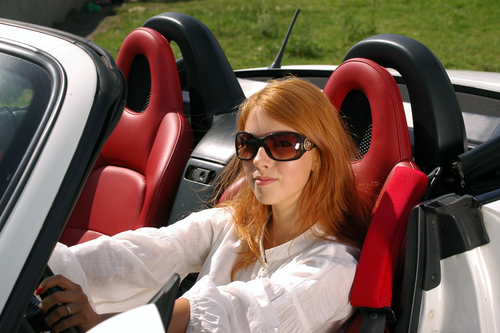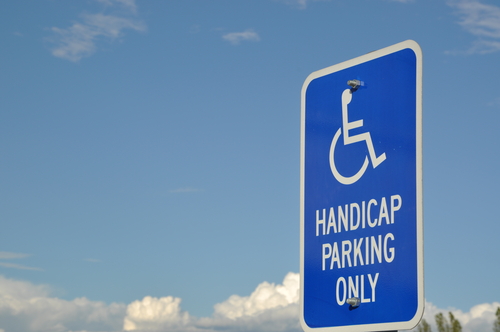
I had no intention of writing on this subject until one morning when I was sitting at my desk in my office at our rehabilitation hospital. I looked out of my window toward the front row of handicapped parking spots. A sleek, late model sports car pulled slowly and carefully into the first of several handicapped parking places. As I looked on with curiosity, a young blond woman sporting a red miniskirt, knee high boots, designer purse with smart phone and an arm tattoo sprung briskly from driver's side. I waited for someone with a disability to exit from the passenger's side but the door never opened. The young woman meticulously covered the equally sleek automotive beauty with a protective cover, maybe not so much for the dust as for the risk of some truly disabled person scratching it with their cane or wheel chair.

On more careful examination of the car I noted that it had the appropriate disabled license plates. Indeed, the young woman was visiting the owner of the car who was also a patient at our hospital. Where better for anyone to park on a hot, humid day than in the spot closest to the front door? Never mind that Bob, who is paralyzed on one side and uses a wheelchair can't find a place to park. I see him driving back and forth waiting for a spot to open up.
There is no doubt that it can be tempting. I have a disabled placard in the glove box of my car that I use when I am driving my 94-year-old, disabled mother to her doctor appointments. But, how easy would it be, when I am alone and it is pouring rain, to slip it over the rear view mirror, park close to the door and limp a little when I head into the grocery store? It is not just that I would be doing something wrong, but I would be depriving the disabled person of a privilege that they deserve and I do not.
Have you been to a large outdoor mall? Just watch who parks in the parking spots right up by the front door. Sure Joe had a bad stroke, but that doesn't entitle his able-bodied wife to park there when she goes by herself to buy groceries. Investigative reporters do television pieces on this problem, placing microphones in the faces of the offenders, but it is also going on in your community. Joe's wife is part of the problem but the medical community may also be contributing to the problem.
The Doctor and the License Plate
It is the physician or the optometrist who has the authority to sign the application forms that grant disabled placards or license plates. But, how many doctors know the law, read the forms and assure that only those truly eligible get the privilege? How often have we signed a form for a patient without really evaluating whether it was a necessity or a "convenience?" Every unnecessary form we sign decreases the number of available parking spots for those that are deserving.

The law leaves a great deal of room for interpretation by the physician. It states that "A person is disabled who has mobility problems that substantially impair the person's ability to ambulate, or who is legally blind." Clearly a person paralyzed by a stroke or who has had a leg amputated qualifies. The judgment call is when someone has low back pain or arthritis in their knees and would prefer to park closer. We need to clearly evaluate whether they have disability. The person with a thinking problem, paralyzed arm or speech disorder would not qualify.
What about the man who has had a heart attack and gets short of breathe when walking? You can interpret this as a problem with mobility or ambulation, since the distance he is capable of walking is impaired. The same is true for patients with severe pulmonary problems. But, how far is too far? Ever try and get a close parking spot at the movies on Saturday night or the new home supply store on the way home from work? It isn't going to happen! Practicing medicine is using one's best judgment and this is no different.
Back to the Miniskirt
Temptation comes in many forms. A one night stand with a handicapped parking spot can get you in trouble. It is illegal for an able-bodied person to park in a disabled parking place if they do not have the disabled person with them. It doesn't matter that a disabled placard is hanging from the rear view mirror or that better yet you have disabled plates. It is like stealing from someone -- someone with a disability.
Six hours later the girl in the miniskirt came back to her car. Just as deftly as she had exited the car, she pulled off the dust cover, not a scratch on the car, and drove away. Clearly the cleanest car leaving our parking lot and not a drop of sweat on her finely powdered brow!
*To find out the regulations in your state go to website of its Motor Vehicle Division as the rules do vary from state to state.